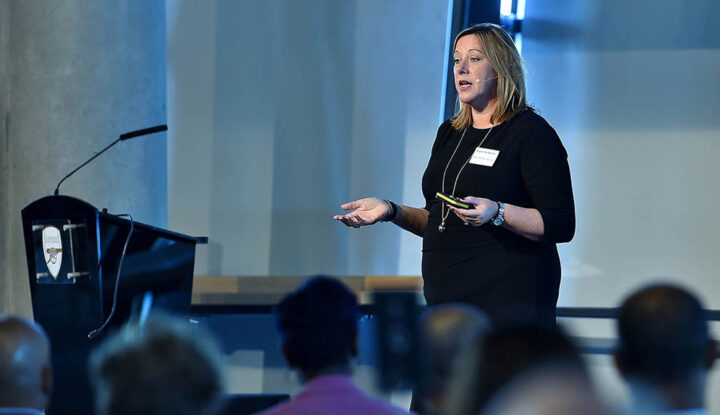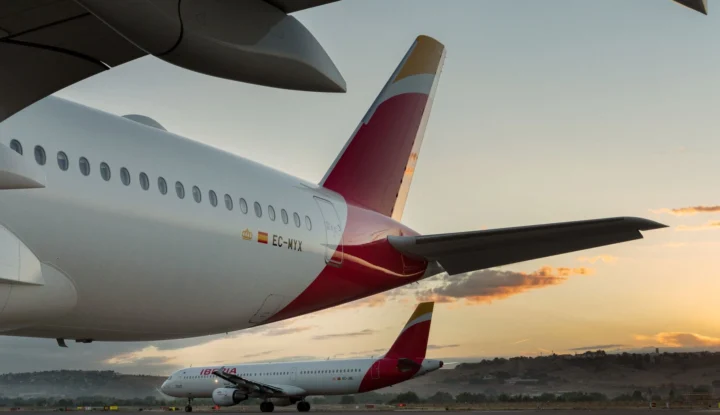Survey Also Shows Emerging Concern by International Airlines on Environmental Challenges
SOUTHLAKE, Texas–(BUSINESS WIRE)–May 7, 2007–While concerns about the environment are growing significantly in international markets, fuel costs dominate all other issues impacting the airline industry, according to results of a survey conducted among North American and international airline executives by Sabre Airline Solutions, the global leader of software and services for the airline industry.
By wide margins, leaders of the 197 airlines who participated in the survey viewed fuel costs as their top challenge and the most significant impediment to profitability. Government regulations and customer loyalty round out the top three issues impacting the airline industry.
“While most airline-related surveys reflect the opinion of passengers on airline service, our survey polled the world’s top airlines on the issues that are directly affecting them, their operations and roadblocks to their successes,” said Gordon Locke, vice president, Sabre Airline Solutions and Distribution Marketing.
The Sabre Airline Solutions survey highlights the emergence of environmental issues, as well as the disparity between airlines headquartered in North America and those based in Latin America, Asia, Europe, Africa and the Middle East. Only 5 percent of North American airlines currently view environmental concerns as a major challenge, while 34 percent of international airlines named it as one of the three biggest challenges they will face in 2007.
“As long as U.S. carriers are focused on survival and rebuilding their balance sheets, and their regulatory climate is not pushing hard, they will not likely embrace environmental concerns as much as European or other regions’ carriers,” said Steve Hendrickson, Sabre Airline Solutions senior strategist. “The momentum for potential regulatory actions against airlines’ carbon emissions is much more pronounced in Europe than in the United States. Also, U.S. airlines are still obsessed with the emerging financial recovery they are slowly achieving, while carriers in many other regions are largely doing pretty well.”
North American and international airlines were virtually identical on the impact of fuel costs with 95 percent of international and 94 percent of North American airlines saying it will have a “significant” cost, revenue or operational impact. Eighty-two percent of North American and 77 percent of international airlines said government regulations would have a significant impact; and 77 percent of North American and 74 percent of international airlines cited customer loyalty.
While high fuel costs are a top airline concern, the Sabre Airline Solutions consulting practice said cost savings in this unpredictable facet of operations can be achieved.
“Our consulting group recently engaged with a North American carrier and a Latin American carrier and found US$5.1 million and US$8 million, per year, of potential fuel savings for these carriers, respectively,” said Khaled Al-Eisawi, of Sabre Airline Solutions consulting. “This level of savings opportunity is significant for any carrier.”
He confirmed that high fuel costs are consistently being cited by airlines as their most pressing issue. “Airlines realize that they have to absolutely optimize their use of fuel resources to remain competitive,” Al-Eisawi said.
Nearly half of the 197 airlines that participated in the survey, 48 percent, believe developing new revenue streams is important to the overall airline revenue strategy, but only about a third or fewer thought some of the most talked-about ideas for generating new revenue would be effective, such as some airlines moves toward offering unbundled pricing and service.
Thirty-five percent said charging extra for seat selections would be an effective source of new revenue and even fewer said in-flight entertainment (34 percent), meals (24 percent) and in-flight comfort items such as pillows and blankets (17 percent) would be effective revenue sources. There was a significant difference of opinion on this issue between North American and international airlines, however; 30 percent of international airlines said meals could be an effective revenue source but only 13 percent of their North American counterparts agreed.
Slightly more than two thirds of the respondents — 68 percent (73 percent North American, 57 percent international) — predicted the number of low-cost carriers would increase by January 2008, while 9 percent believe the number will decrease and 23 percent predict it will stay relatively the same. Far less than half the airlines surveyed saw increases in the number of regional or international long-haul carriers.
While 45 percent of North American airlines said airline bankruptcies will have a significant revenue or operational impact on their airline, only 29 percent of international carriers agreed. “Each region or nation has its own unique bankruptcy laws, and the U.S. airline industry has now spent many years learning all the ins and outs of Chapter 11 restructurings,” Hendrickson said.
“The ones taking place today are more sophisticated and well managed than those a decade or more ago. The U.S. industry had a lot of legacy costs and related issues to cleanse itself of in bankruptcy court, and they had a lot of intellectual capital — lawyers, accountants, consultants, etc. — at their disposal to work all the leverage that a court-supervised restructuring allows. The bankruptcy gambit in other parts of the world is just not as accepted or conducive to effective restructuring as it is in the United States and Canada.”
In another notable difference of opinion, while 30 percent of international airlines thought the inability to secure new routes would be among their top three revenue impediments, only 15 percent of North American airlines agreed.
“The U.S. domestic market is totally deregulated and thus any airline can fly where it wants, when it wants,” Hendrickson said. “This is not necessarily so for many other domestic markets around the world.
“Plus, the U.S. government has secured a good array of bilateral route authorities and even open skies agreements from which its carriers can draw their expansion opportunities,” Hendrickson added. “Contrast that to some of the other countries around the world where airlines may still face restrictive route freedoms, slot scarcity or gate constraints. In some cases, the traditional flag carrier may be owned by that country’s government and hold the majority of route authorities while newer rivals, who might be privately funded, are only slowly gaining route authorities from the government.”
Respondents expect 46 percent of all passengers will book their travel directly online in 2007. This number is considered an increase by 87 percent of the respondents over the number that booked online in 2006. Among those who book their travel online, airline executives said six out of 10 will book through an airline’s Web site while the others will use online distributor Web sites.
Sabre Airline Solutions conducted the online survey between March 13 and March 23.
DETAILED RESULTS
Industry Impact (When asked to rate on a scale of 1 to 5, with 5 representing significant impact, the percentage of airlines who rated the following issues either 4 or 5 as having the greatest impact from a cost, revenue or operational standpoint)
Fuel costs 94%
Government regulations 79%
Customer loyalty 75%
Security concerns 58%
Labor contracts 55%
Alliances 50%
New entrants 42%
Airline mergers 34%
Airline bankruptcies 34%
Industry Challenges (When asked to identify the three biggest challenges facing their airline in 2007)
Fuel Costs 91%
Customer loyalty 55%
Government mandates 40%
Security 34%
Environmental Impact 25%
Safety 19%
Mergers 18%
Industry Revenue Impediments (When asked choose the top three biggest revenue impediments to their airline in 2007)
Fuel costs 91%
Labor costs 44%
Airport costs 43%
Distribution costs 39%
Government regulations 29%
Inability to secure new routes 25%
Management costs 20%
Effectiveness of New Revenue Sources
Seat Selection
Effective 35%
Neutral 24%
Not effective 41%
In-flight entertainment (movies, earphones, DVD players, etc.)
Effective 34%
Neutral 26%
Not effective 40%
Meals
Effective 24%
Neutral 22%
Not effective 54%
In-flight comfort items (pillows, blankets, etc.)
Effective 17%
Neutral 28%
Not effective 55%
Change in carrier types by January 2008
Number of low-cost carriers
Will increase 68%
Will decrease 9%
No change 23%
Number of regional carriers
Will increase 37%
Will decrease 26%
No change 38%
Number of international long-haul carriers
Will increase 41%
Will decrease 13%
No change 46%
Survey demographics
Carrier Type
U.S. Major 9%
International Long Haul 18%
Traditional Flag 25%
Regional 20%
Low Cost Carrier 10%
Hybrid (a) 18%
(a) Combined elements of full service with value focused.
Headquarter Location
North America 32%
Europe/Middle East/Africa 36%
Latin America 10%
Asia 22%
About Sabre Airline Solutions
Sabre Airline Solutions, a Sabre Holdings company, is the world’s largest provider of smart, proven, bankable products to help airlines market, sell, serve and operate from planning to execution. The company provides unmatched breadth and depth of integrated, dynamic business solutions delivered by experts to reduce airlines’ costs, increase revenue and optimize the customer experience.
More than 250 airlines use its broad portfolio of 112 decision-support tools to increase revenues and improve operations. More than 100 airlines rely on Sabre Airline Solutions for passenger management solutions, while a similar number have turned to the company’s consulting group for strategic, commercial and operational advice. More than 650 contracts worldwide were signed in 2006 for Sabre Airline Solutions’ leading technology solutions.
Sabre Holdings connects people with the world’s greatest travel possibilities by retailing travel products and providing distribution and technology solutions for the travel industry. More information about Sabre Holdings is available at http://www.sabre-holdings.com.
Sabre Airline Solutions, and the Sabre Airline Solutions logo, are trademarks and/or service marks of an affiliate of Sabre Holdings Corporation. All other trademarks, service marks, and trade names are the property of their respective owners.
CONTACT: Sabre Holdings
Nancy St. Pierre, 682-605-3864
Nancy.st.pierre@sabre.com
SOURCE: Sabre Airline Solutions



